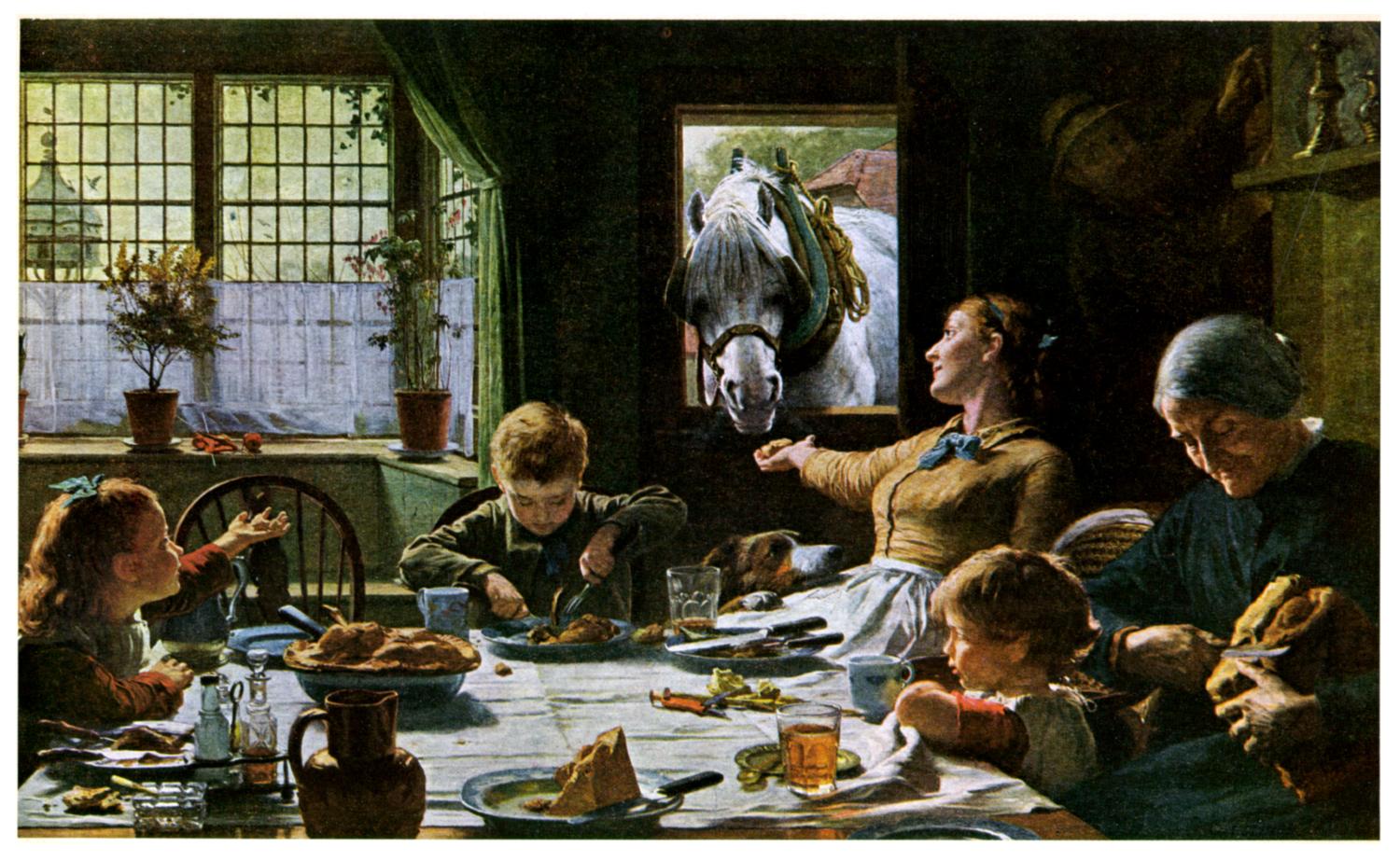Yummy
Yummy


Yummy
Appetite
“It is a matter of general remark and complaint with both men and women, that their appetite, compared with what it was in childhood, is very poor. And frequently you will hear the man say, "Oh, how I wish I relished food as I did when I was a boy." And the young husband remarks to his wife, "O Jane, I wish you could bake such rye and Indian bread, and make such mince and apple pies as mother used to make when I was at home," when very likely the truth is, that the wife thus addressed, as a cook, compared with her mother-in-law, is as three to one. The fault is in the perverted palate of the young man, and not in the cook.
But why is it that we do not experience that exquisite pleasure in eating and drinking that we did when we were children? One fact no doubt is, that the demands of a growing body are proportionately greater than those of a matured one. And not only this, but in childhood all the sensibilities of our nature (physical, as well as mental or moral), are chaste and acute compared with manhood. In maturity, the system in all its parts and feelings, is more or less rigid.
But these are not all the reasons, neither can we regard either as the main one, for the great lack of appetite or relish for food in those of older years. For the principle by which the system is supplied, whether in process of construction or in repairing damages sustained, in both cases is the same. And while the zest with which we eat our food may be regarded as the gratitude of nature for wants being supplied, and hunger the language of the body calling for help, it follows that the joy that fills our being as we eat, must result from the wants of our system and the loudness and intensity of the voice of hunger. A full soul will loath the choicest sweetmeats, whereas to an hungry one the bitter is almost sweet.
How can we expect to experience great pleasure in eating when we are not hungry? And why should we expect to be hungry while the wants of the system are already supplied? And the principal reason why we older people do not have the same relish for food as when we were children, is not because of the deadness of our system to appreciate the favors it receives, but it lies in the fact that the wants of our bodies are supplied before they are permitted to manifest themselves. In other words, we drink before we are thirsty, and eat before we are hungry; and the natural consequence is, that we are neither thirsty nor hungry.
If there are those who have any doubts of the truth of the foregoing, a slight observation of children, and a few examples of manhood, will be quite sufficient to rectify all such unbelief. The child, if left to his own way, rarely eats a full meal-enough at once to serve him until the next meal-time, and as the mother will not have any piecings, the consequence is, that he becomes very hungry indeed; so hungry that his very being bounds with joy as he begins to eat. But how is it with the man? Why, in the majority of instances, he eats more than enough to supply the demands of his nature; and as this habit is continued time after time, and day after day, the consequence is, that his appetite is continually cloyed. But take the soldier who is forced to march all day and perhaps all night with but very little food and no water at all. How does he feel as he nears the clear cool stream, or the well stored camp? Has he any complaints to make about his loss of appetite, or lack of fine flavors in the food?
Again, we may take the merchant who has but little to do in his counting room, and yet who feeds himself almost constantly to gluttony, all the while complaining of poor cooks and insipid food. Let him continue his walk or ride into the country an hour or two beyond his regular dinner or supper time; or let him miss one or two meals altogether; do you not think the cooking would greatly improve in his absence? Most assuredly it would in his estimation. But enough. A word to the wise is sufficient. And let those who are afflicted, dilligently apply the remedy.
E. Goodrich.
Edinboro, Pa.
January 24, 1865 UrSe, ARSH 69